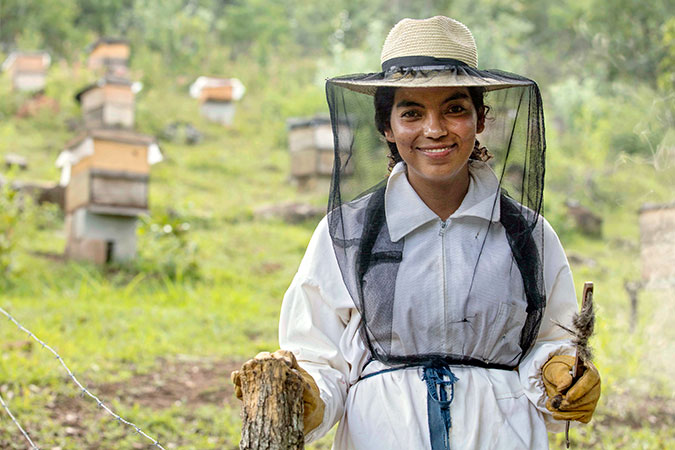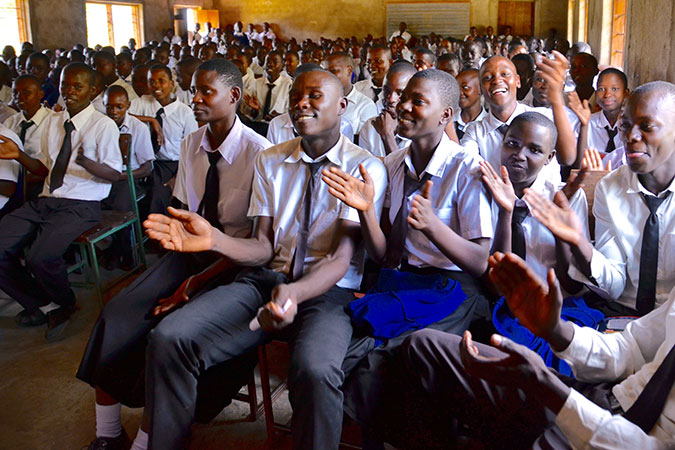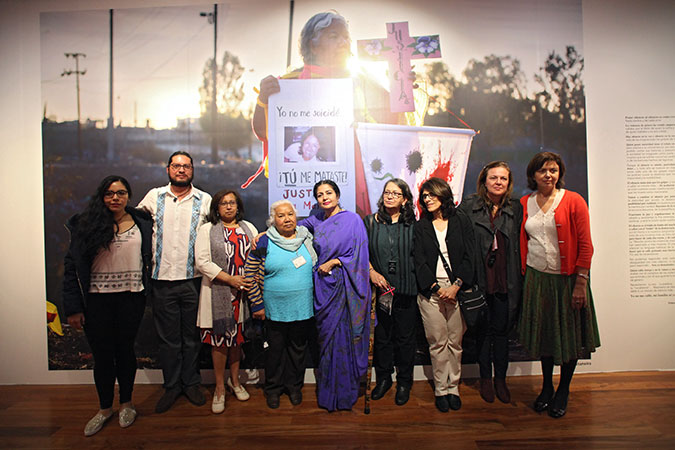SDG 5: Achieve gender equality and empower all women and girls
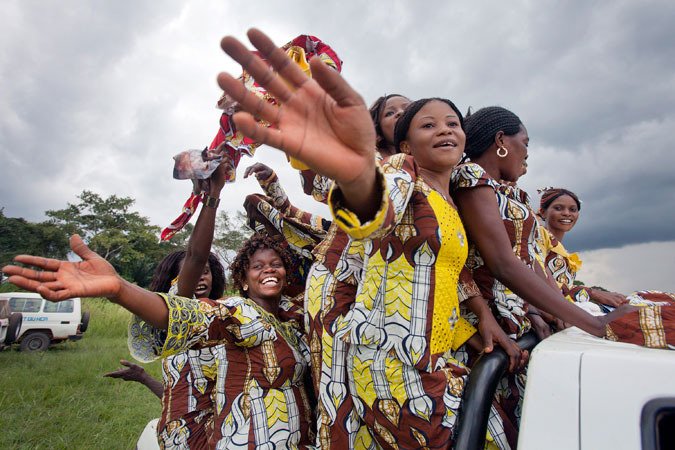
Targets
- End all forms of discrimination against all women and girls everywhere.
- Eliminate all forms of violence against all women and girls in the public and private spheres, including trafficking and sexual and other types of exploitation.
- Eliminate all harmful practices, such as child, early and forced marriage and female genital mutilation.
- Recognize and value unpaid care and domestic work through the provision of public services, infrastructure and social protection policies and the promotion of shared responsibility within the household and the family as nationally appropriate.
- Ensure women’s full and effective participation and equal opportunities for leadership at all levels of decisionmaking in political, economic and public life.
- Ensure universal access to sexual and reproductive health and reproductive rights as agreed in accordance with the Programme of Action of the International Conference on Population and Development and the Beijing Platform for Action and the outcome documents of their review conferences.
- Undertake reforms to give women equal rights to economic resources, as well as access to ownership and control over land and other forms of property, financial services, inheritance and natural resources, in accordance with national laws.
- Enhance the use of enabling technology, in particular information and communications technology, to promote the empowerment of women.
- Adopt and strengthen sound policies and enforceable legislation for the promotion of gender equality and the empowerment of all women and girls at all levels.
Women and girls, everywhere, must have equal rights and opportunity, and be able to live free of violence and discrimination. Women’s equality and empowerment is one of the 17 Sustainable Development Goals, but also integral to all dimensions of inclusive and sustainable development. In short, all the SDGs depend on the achievement of Goal 5.
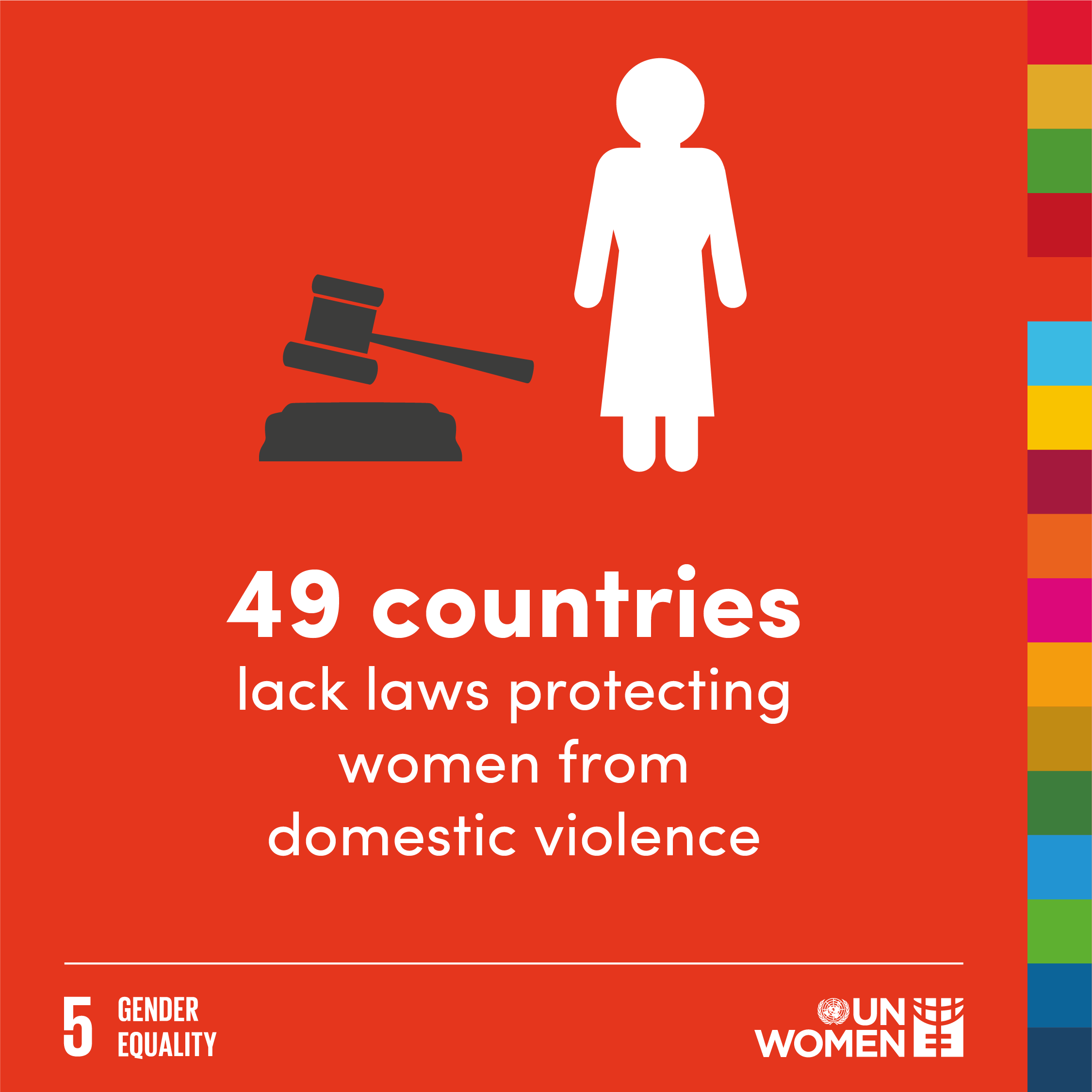
Gender equality by 2030 requires urgent action to eliminate the many root causes of discrimination that still curtail women’s rights in private and public spheres. For example, discriminatory laws need to change and legislation adopted to proactively advance equality. Yet 49 countries still lack laws protecting women from domestic violence, while 39 bar equal inheritance rights for daughters and sons. Eliminating gender-based violence is a priority, given that this is one of the most pervasive human rights violations in the world today. Based on data from 87 countries, 1 in 5 women and girls under the age of 50 will have experienced physical and/or sexual violence by an intimate partner within the last 12 months. Harmful practices, such as child marriage, steal the childhood of 15 million girls under age 18 every year.
Women do 2.6 times more unpaid care and domestic work than men. While families, societies and economies depend on this work, for women, it leads lower earnings and less time to engage in non-work activities. In addition to equal distribution of economic resources, which is not only a right, but accelerates development in multiple areas, there needs to be a fair balance of responsibility for unpaid care work between men and women.
Sexual and reproductive rights are critical in their own right. Shortfalls in these multiply other forms of discrimination, depriving women of education and decent work, for example. Yet only 52 per cent of women married or in a union freely make their own decisions about sexual relations, contraceptive use and health care.
While more women have entered political positions in recent years, including through the use of special quotas, they still hold a mere 23.7 per cent of parliamentary seats, far short of parity. The situation is not much better in the private sector, where women globally occupy less than a third of senior and middle management positions.[1]
UN Women acts to empower women and girls across all its programmes and advocacy. With stepped up action on gender equality, every part of the world can make progress towards sustainable development by 2030, leaving no one behind.
Stories
From where I stand: “When I’m stung, I am reminded of how strong I already am”
Oralia Ruano Lima was among the first women in her indigenous community to join an all-female entrepreneurship project as a beekeeper. Today the women beekeepers of Urlanta, a village in Guatemala, are bringing in sustainable jobs and income to their rural communities, and changing mindsets and attitudes towards women.
Safe in Serengeti: Young women and girls seek refuge from female genital mutilation
Girls as young as seven flee female genital mutilation and other abuses in the Mara region of Tanzania, escape to a safe house which provides them shelter and protection. The UN Trust Fund to End Violence against Women has supported Amref Health Tanzania to launch an awareness raising and advocacy programme, aiming to end FGM practices.
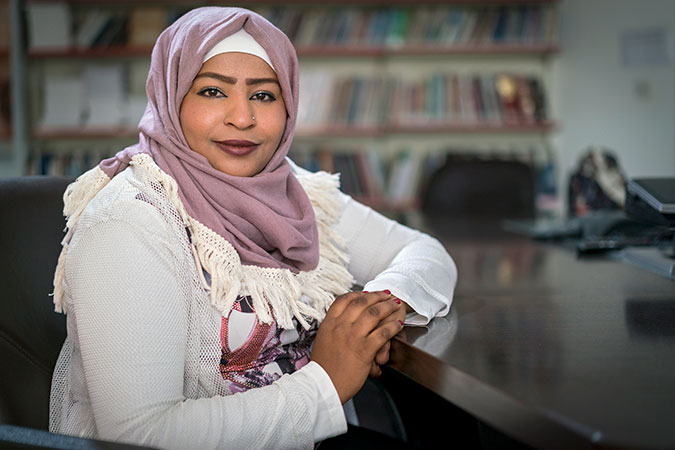
From where I stand: “I made history by becoming the youngest City Council member”
After attending leadership trainings, Abla Al Hajaia became the youngest City Council member in Jordan in 2016. Now, she uses her position to help Syrian refugees in her community and educate women on their legal rights.
The long road to justice, prosecuting femicide in Mexico
It took Irinea Buendía six years to get justice for her daughter’s murder, but her pursuit of justice led to a historic precedent in prosecuting femicide in Mexico. UN Women is supporting government institutions and civil society organizations, so that together they can raise awareness and end impunity towards crimes against women and girls.
Notes
[1] UN Economic and Social Council (2017). Progress towards the Sustainable Development Goals: Report of the Secretary-General (E/2017/66).
